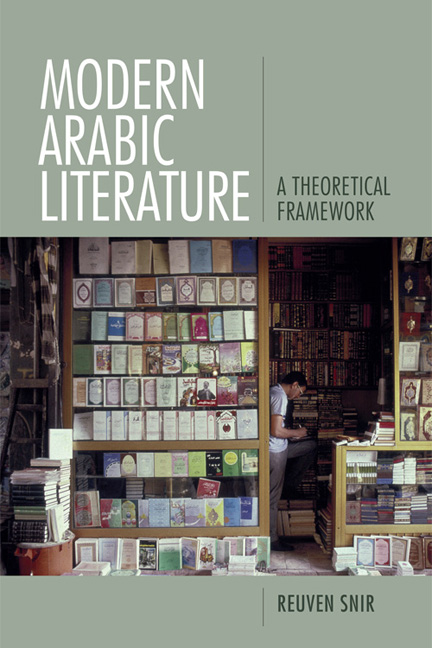Book contents
Preface
Published online by Cambridge University Press: 03 January 2018
Summary
No scholar or historian of literature can systematically study literary phenomena without relating them, implicitly or explicitly, to some framework of facts or ideas. The very choice of a framework could, however, have a determining influence upon the kinds of results that can be achieved. The present study outlines a theoretical dynamic operative framework, in which the historical development of modern Arabic literary texts can be studied, and, at the same time, it offers flexible, transparent, and (as much as possible) unbiased tools to understand their relevant contexts in the literary system. This system is autonomous in that it forms a network of the relations that obtain between texts (including potential texts) and ensures that they “belong to” and “constitute” a single, unified whole. I hope that the framework offered here for the systematic study of modern Arabic literature will enhance our understanding of this literature, throw light on areas of literary production that traditionally have been neglected, and stimulate others to take up the fascinating challenge of mapping them out and exploring them.
During the periods in which the data for this study was being collected and the pages of this study were being written, the scholarship on Arabic literature witnessed two major unprecedented developments. The first development was the significant increase in scholarly publications in Arabic and other languages. Index Islamicus, which contains material published in European languages on all matters related to Islam and the Muslim World, clearly reflects this development: When I began writing this preface, there were only 4,503 publications on Arabic literature listed as having been published before 1985; now, that is, at the time of completion of the entire manuscript of this book, the number is 20,279.
The second development was the rapid growth and proliferation of sophisticated forms of media, particularly Internet-related technologies: blogging, techno-writing, and interactive literature. New possibilities for literary voices have been opened for Arab writers to imagine new realities, and these possibilities provided additional forums and stages for literary and critical texts to be presented and discussed side by side with the traditional ones.
- Type
- Chapter
- Information
- Modern Arabic LiteratureA Theoretical Framework, pp. ix - xiPublisher: Edinburgh University PressPrint publication year: 2017

